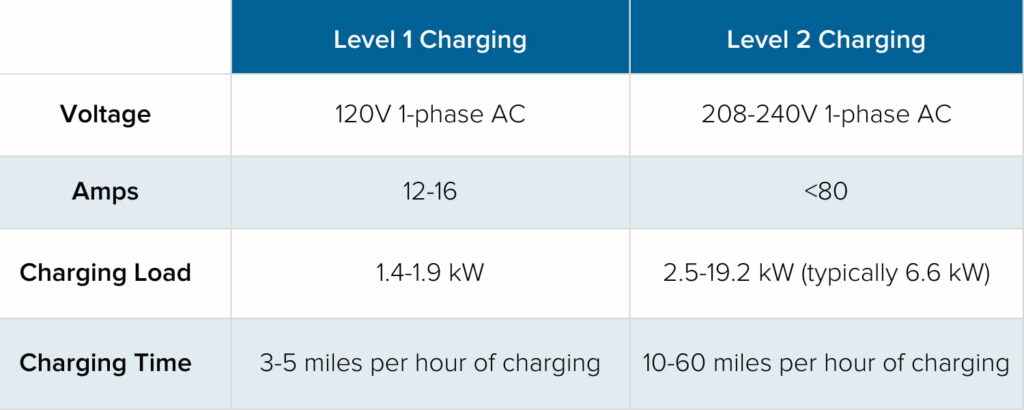Solar EV Charging: A Sustainable Energy Solution
Solar EV charging is an innovative and promising technology that combines the power of the sun with electric vehicle charging. By utilizing solar energy to charge EVs, we can make significant strides in reducing our carbon footprint and achieving energy independence. This blog explores the numerous benefits, functionality, and cost savings associated with solar EV charging for homeowners.
One of the key advantages of solar-powered electric vehicle charging is its ability to harness clean and renewable energy from the sun. By charging electric vehicles with solar power, we can significantly reduce greenhouse gas emissions compared to traditional grid-powered charging methods. This contributes to a greener and more sustainable future by minimizing our reliance on fossil fuels.
In addition to its environmental benefits, solar energy charging for EVs offers homeowners greater energy independence. By generating their own electricity through solar panels, individuals can become less dependent on the traditional power grid. This not only provides a sense of self-sufficiency but also ensures uninterrupted access to vehicle charging even during power outages or emergencies.
The integration of solar panels into home charging systems allows for seamless and efficient utilization of solar energy. These panels capture sunlight and convert it into electricity through photovoltaic technology. The generated electricity can be directly used to charge electric vehicles or stored in batteries for later use when sunlight is not available.
By embracing the concept of charging electric vehicles with solar power, homeowners can experience long-term cost savings as well. Solar EV charging reduces reliance on conventional electricity sources, resulting in lower monthly electricity bills over time. Additionally, government incentives and tax credits are often available for those who adopt solar energy solutions, further enhancing the financial benefits.
The Benefits of Solar EV Charging

Solar EV charging offers numerous benefits, both for individuals and the environment. By utilizing clean and renewable solar energy to power electric vehicles, we can make a significant impact on reducing our carbon footprint and achieving a greener and more sustainable future.
Reduced Carbon Footprint
One of the most significant advantages of solar-powered electric vehicle charging is its ability to significantly reduce greenhouse gas emissions. Traditional methods of charging electric vehicles rely on electricity generated from fossil fuels, which contribute to air pollution and climate change. In contrast, solar EV charging harnesses the power of the sun, providing a clean and renewable energy source that produces zero emissions during operation. By choosing to charge electric vehicles with solar power, we actively contribute to mitigating climate change and preserving our planet for future generations.
Energy Independence
Solar EV charging allows homeowners to generate their own electricity for vehicle charging, promoting greater energy independence. By installing solar panels on rooftops or in open spaces, individuals can harness the abundant energy provided by the sun. This self-sufficiency reduces reliance on the traditional power grid, providing peace of mind during power outages or emergencies. With solar-powered electric vehicle charging, individuals have control over their energy production and consumption, leading to increased resilience in times of uncertainty.
By relying on solar power for EV charging, owners can also experience reduced dependence on fluctuating electricity prices. As utility rates continue to rise over time, generating your own electricity through solar panels provides a stable and predictable source of energy for vehicle charging. This not only helps save money but also ensures long-term affordability as fuel costs continue to increase.
How Solar EV Charging Works

Solar EV charging operates through the integration of solar panels and charging infrastructure, utilizing photovoltaic technology to convert sunlight into electricity for electric vehicle charging.
Solar Panels and Photovoltaic Technology
Solar panels play a crucial role in solar-powered electric vehicle charging. These panels are designed to capture sunlight and convert it into usable electricity through photovoltaic technology. Photovoltaic cells within the panels contain semiconductor materials that absorb photons from sunlight, releasing electrons and generating an electric current. This clean energy can then be used to directly charge electric vehicles or stored in batteries for later use when sunlight is not available.
The efficiency of solar panels has significantly improved over the years, allowing for greater energy conversion rates. Modern solar panels can generate electricity even under low light conditions, ensuring reliable charging capabilities for electric vehicles throughout the day. With advancements in technology, solar panels have become more affordable and accessible, making them an attractive option for homeowners looking to embrace sustainable energy solutions.
Charging Infrastructure and Compatibility
Solar EV charging systems are compatible with most electric vehicles available on the market today. Homeowners have various options when it comes to setting up their charging infrastructure. They can choose to install dedicated solar-powered charging stations at their homes or opt for portable chargers that can be powered by solar energy.
Installing a dedicated charging station provides convenience and faster charging times compared to standard electrical outlets. These stations are specifically designed for efficient electric vehicle charging and often come with additional features such as smart connectivity and monitoring capabilities.
Portable chargers powered by solar energy offer flexibility, allowing users to charge their vehicles wherever there is access to sunlight. These chargers are particularly useful for individuals who frequently travel or do not have a permanent parking space with access to a dedicated charger.
With the compatibility of solar EV charging systems across different electric vehicle models, homeowners have the freedom to choose the setup that best suits their needs while enjoying the benefits of sustainable energy.
The Role of Solar Panels in Home Charging
Solar panels play a crucial role in home charging systems, providing the necessary power to charge electric vehicles using clean and renewable energy.
Efficiency and Output of Solar Panels
Over the years, solar panels have become increasingly efficient in converting sunlight into electricity. Advancements in photovoltaic technology have led to higher energy conversion rates, allowing for more effective utilization of solar energy. These improvements mean that modern solar panels can generate a greater amount of electricity from the same amount of sunlight compared to earlier models.
Higher output solar panels ensure faster and more reliable charging for electric vehicles. With increased efficiency, homeowners can charge their EVs more quickly, reducing overall charging times and enhancing convenience. Additionally, the improved reliability of solar panels ensures consistent power generation even under less-than-optimal weather conditions, ensuring uninterrupted access to solar-powered electric vehicle charging.
Integration with Home Energy Systems
Solar panels can be seamlessly integrated with home energy systems for optimized usage. Excess solar energy generated during the day can be stored in batteries for later use when sunlight is not available. This allows homeowners to maximize their use of solar power by utilizing stored energy during nighttime or cloudy periods.
Furthermore, surplus solar energy can be fed back into the grid through net metering programs. When homeowners produce more electricity than they consume, they can sell the excess power back to the utility company. This not only helps offset electricity costs but also contributes to a more sustainable and resilient electrical grid.
The integration of solar panels with home energy systems provides homeowners with greater control over their energy production and consumption. By harnessing the power of the sun through photovoltaic panels, individuals can reduce their reliance on traditional sources of electricity while promoting a greener and more sustainable lifestyle.
Type of Home EV Chargers

When setting up a home EV charging station powered by solar panel energy, there are several types of EV chargers to consider. Here are some common options:
Level 1 Chargers
Description: Level 1 chargers are standard household outlets (120 volts in the United States). They are the slowest charging option.
Suitability: Level 1 chargers are suitable for EV owners with low daily driving needs, where overnight charging is sufficient.
Integration with Solar: Level 1 chargers can be easily integrated into a solar-powered system.
Level 2 Chargers
Description: Level 2 chargers operate at 240 volts and offer faster charging than Level 1 chargers.
Suitability: Level 2 chargers are suitable for daily use and can charge most EVs overnight. They are commonly used in residential settings.
Integration with Solar: Level 2 chargers can be integrated with solar panels, and their higher power demand can be accommodated with a sufficiently sized solar array.
Long-Term Cost Savings and Return on Investment
Investing in solar EV charging offers significant long-term cost savings and a favorable return on investment for homeowners.
Financial Benefits of Solar EV Charging
One of the primary financial benefits of solar EV charging is the reduction in electricity bills over time. By utilizing solar power to charge electric vehicles at home, homeowners can significantly decrease their reliance on grid-supplied electricity. This leads to lower monthly electricity costs, as the energy used for charging comes from clean and renewable sources rather than traditional fossil fuel-based power plants.
Additionally, governments often provide incentives and tax credits to encourage the adoption of solar energy. These incentives can further offset the initial investment costs associated with installing solar panels for residential EV charging. By taking advantage of these programs, homeowners can enhance their financial savings while contributing to a more sustainable future.
Return on Investment (ROI)
Investing in solar EV charging provides a favorable return on investment over time. The initial cost of installing solar panels for home-based electric vehicle charging can be recouped through various factors. Firstly, the savings on fuel costs are substantial when compared to conventional gasoline-powered vehicles. With solar-powered electric vehicle charging, homeowners can significantly reduce or eliminate their dependence on expensive fossil fuels.
Furthermore, electric vehicles generally require less maintenance compared to internal combustion engine vehicles. The absence of oil changes and fewer moving parts result in reduced maintenance expenses over the lifetime of an electric vehicle. These savings contribute to the overall return on investment when combined with the long-term cost savings from using solar energy for residential EV charging.
By embracing solar EV charging, homeowners not only save money but also contribute to a cleaner environment by reducing greenhouse gas emissions and promoting sustainable transportation options.
Embracing the Future: Solar EV Charging

Solar EV charging represents a sustainable and eco-friendly solution for powering electric vehicles. By harnessing the power of the sun, we can significantly reduce our environmental impact while promoting energy independence.
With solar-powered electric vehicle charging, we have the opportunity to transition away from fossil fuel dependency and embrace renewable energy sources. By utilizing solar energy to charge our EVs, we can minimize greenhouse gas emissions, contributing to cleaner air and a healthier planet. This shift towards sustainable transportation is crucial in combating climate change and creating a more sustainable future for generations to come.
Furthermore, solar EV charging empowers homeowners by providing them with greater control over their energy consumption. By generating their own electricity through solar panels, individuals become less reliant on traditional power grids and are better prepared for power outages or emergencies. This increased resilience promotes self-sufficiency and ensures uninterrupted access to vehicle charging.
As technology continues to advance and solar panels become more efficient and affordable, the future of solar EV charging looks promising. It offers an accessible and practical solution for homeowners who wish to reduce their carbon footprint while enjoying long-term cost savings on electricity bills.
Embrace the future of solar EV charging and join the movement towards a greener and more sustainable world. Together, we can make a significant difference by adopting clean energy solutions that promote environmental stewardship and pave the way for a brighter future.








